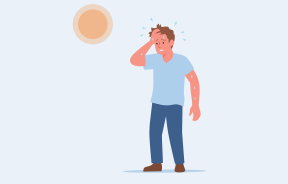Being Curious Improves Your Decision-Making: New Study

After generations of thinking that curiosity killed the cat, a new study shows that curiosity can actually result in better behavior choices. New findings presented at the annual convention of the American Psychological Association show that feeling curious can help people make smarter, and even sometimes healthier, decisions.
"Our research shows that piquing people's curiosity can influence their choices by steering them away from tempting desires, like unhealthy foods or taking the elevator, and toward less tempting, but healthier options, such as buying more fresh produce or taking the stairs," Evan Polman, PhD, of the University of Wisconsin-Madison and an author of the study, explained in a recent statement.
Researchers conducted a series of four experiments to test how raising people's curiosity might affect their choices. After the studies concluded, there was a noticeable behavior change in every case.
The group first carried out an experiment where they approached 200 people in a university library and presented them a choice between a plain fortune cookie and one dipped in chocolate and covered in sprinkles. Half of the group was informed that the plain cookie contained a personal fortune, but the other half was given no information at all. Of the latter crowd, 80 percent chose the chocolate-dipped cookie. Participants whose curiosity was stimulated picked the plain cookie by 71 percent.
Polman and his colleagues also carried out one lab experiment before conducting two field studies. In the first, researchers increased the use of stairs in a university building by nearly 10 percent. How did they inspire the healthy decision? By posting trivia questions near the elevators and promising the answers in the stairwell.
In the final study, researchers placed cards emblazoned with jokes near the produce in a grocery store and then printed the punchline on bag closures. This increased the purchase of fresh produce in grocery stores by 10 percent.
These results show that curiosity can be used to entice people to engage in healthier behaviors — including exercising more or eating healthier foods.
"Our results suggest that using interventions based on curiosity gaps has the potential to increase participation in desired behaviors for which people often lack motivation," Polman said. "It also provides new evidence that curiosity-based interventions come at an incredibly small cost and could help steer people toward a variety of positive actions."
Source: Polman, E. Curiosity Has The Power To Change Behavior For The Better. American Psychological Journal . 2016.
Published by Medicaldaily.com



























